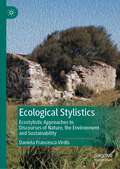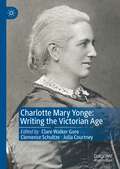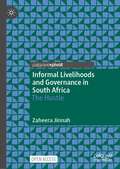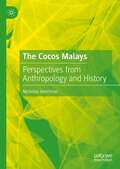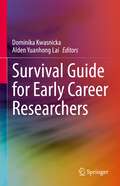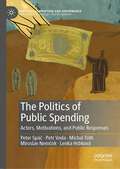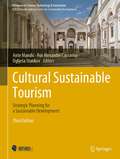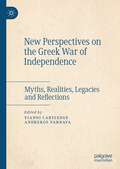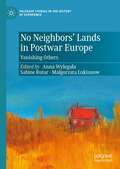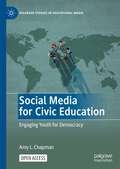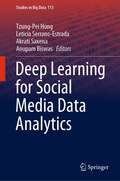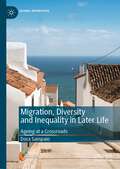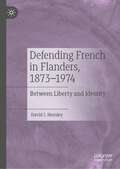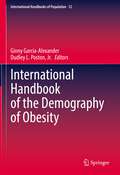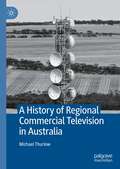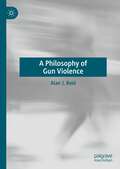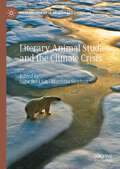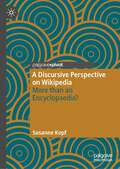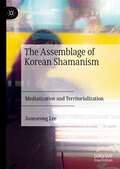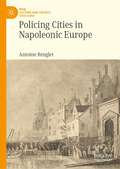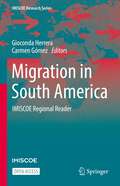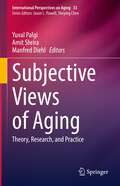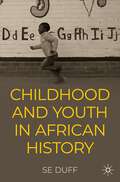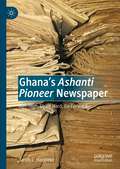- Table View
- List View
Ecological Stylistics: Ecostylistic Approaches to Discourses of Nature, the Environment and Sustainability
by Daniela Francesca VirdisThis book reflects the cutting edge in ecostylistic approaches to nature, the environment and sustainability as represented in contemporary non-literary discourse. Firstly, the book presents the ecolinguistic and stylistic terms and theories applied in this ecostylistic analysis (ecosophy, beneficial, ambivalent and destructive discourses; and foregrounding, point of view, metaphor), and reviews the most recent literature in the field of ecostylistics. Secondly, the book examines the occurrences of five marker words (nature, environment, ecosystem, ecology, sustainability) on the websites of five environmental organisations and agencies (Forestry England, Greenpeace International, National Park Service, Navdanya International, World Wide Fund for Nature). The main research purpose of this study is to identify beneficial discourses in the environet and to investigate the beneficial ecostylistic strategies utilised to produce them. Above all, this book reminds us humans that we do not stand apart from nature: we are a part of it. The book will be of interest to scholars of stylistics, ecolinguistics and ecocriticism, as well as scholars of discourse analysis, environmental communication and environmental humanities.
Charlotte Mary Yonge: Writing the Victorian Age
by Clare Walker Gore Clemence Schultze Julia CourtneyThis interdisciplinary collection of essays explores the life and work of Charlotte M. Yonge, a highly influential and popular nineteenth-century writer who is emerging from a long period of critical neglect. Its wide-ranging chapters capture the scope and quality of current work in Yonge studies, addressing the full range of her prolific literary output from her best-selling novels to her nature writing, biographies, and letters. Considering themes from gender, disability, and empire, to Tractarianism, secularism, and the idea of progress, these essays consider how Yonge reflected and shaped the tastes, ideas and anxieties of her readers and contemporaries. Exploring her key role in the Anglican revival, her importance as a test case in the development of feminist criticism, and her formal innovativeness as a novelist, this collection places Yonge centrally in the nineteenth-century literary landscape and demonstrates her ongoing relevance to scholars and students of the period.
Informal Livelihoods and Governance in South Africa: The Hustle
by Zaheera JinnahThis open access book offers a compelling account of everyday life, livelihoods, and governance in post-apartheid South Africa among the urban poor and marginalized, anchored in and through a critique of the concept of informality, or living outside of the state, its laws, services, and protection. Using a case study of the Zama Zama, loosely translated from the isiZulu as ‘to hustle, or to strive’ and colloquially used to refer to those working as informal artisanal miners on Johannesburg’s numerous disused and abandoned gold mines, the book documents an ethnography of this community’s everyday lives, struggles, and hopes. It provides an intimate account of a community, its social relations, and its political relationship to the state. The narratives of the Zama Zama are used to raise broader questions about precarity, belonging, and governance in post-apartheid South Africa, and suggest that pervasive informality could risk the country's democratic order.
The Cocos Malays: Perspectives from Anthropology and History
by Nicholas HerrimanLooking at the past from an anthropological perspective, this book deploys and analyses a variety of anthropological concepts to understand the history of Cocos Malay society. Around 400 Cocos Malays reside on their remote Indian Ocean atoll, the Cocos Islands. Possessing a unique culture and dialect, they could be considered Australia's oldest Muslim and oldest Malay group. Yet their society only developed over the past two centuries. In the early 1800s, a European gathered about one hundred slaves from around Southeast Asia. After settling on Cocos, a dynasty of rulers tried to distinguish themselves as European kings. Under them, the Southeast Asians in the group toiled in the export of coconuts. But despite this, these Southeast Asians influenced and intermarried with the rulers. As a result, a Eurasian society developed. The Cocos Malays were initially implicated in Southeast Asian and wider Indian Ocean trade and communication networks. Later, this connectivity intensified through technologies such as telegraph cable and the Internet. This book uses the history of the Cocos Malays to explore questions of broader interest to anthropologists, such as how concepts from the overlap of history and anthropology ‘unlock’ the history of societies; how we can usefully combine the ‘indigenous’ concepts like “kerajaan” with internationally accepted concepts like class; and what is obscured when we use the concepts from the anthropology-history crossover to understand the past.
Survival Guide for Early Career Researchers
by Dominika Kwasnicka Alden Yuanhong LaiNavigating research careers is often highly challenging for early career researchers (ECRs) in the social sciences. The ability to thrive in research careers is complex and requires "soft" people and management skills and resilience that often cannot be formally taught through university coursework. Written from a peer perspective, this book provides guidance and establishes emotional rapport on topical issues relevant for ECRs in academia and industry. The authors are ECRs who have been successful in navigating their careers, and they seek to connect with readers in a supportive and collegial manner. Each chapter includes elements of story-telling and scientific thinking and is organized into three parts: (1) a personal story that is relevant to the topic; (2) key content on professional and personal effectiveness based on evidence in the psychological, sociological, and/or management sciences; and (3) action points and practical recommendations. The topics covered are specifically curated for people considering undertaking research careers or already working in research, including:Work Hard, Snore Hard: Recovery from Work for Early Career ResearchersNetworking and Collaborating in Academia: Increasing Your Scientific Impact and Having Fun in the ProcessAccelerating Your Research Career with Open ScienceEngaging with the Press and MediaMake Your Science Go Viral: How to Maximize the Impact of Your ResearchExploring the Horizon: Navigating Research Careers Outside of AcademiaThinking like an Implementation Scientist and Applying Your Research in PracticeSurvival Guide for Early Career Researchers summarizes relevant evidence-based research to offer advice in strategic but also supportive ways to ECRs. It is an essential go-to practical resource for PhD students, postdoctoral fellows, and junior faculty. This book will also benefit senior researchers who are serving as mentors or delivering professional development programs, administrators and educators in institutions of higher learning, and anyone with an interest in building a successful research career.
The Politics of Public Spending: Actors, Motivations, and Public Responses (Political Corruption and Governance)
by Peter Spáč Petr Voda Michal Tóth Miroslav Nemčok Lenka HrbkováThis book provides a comprehensive analysis of the distribution of public money and its political and societal implications. Drawing on evidence from central and eastern Europe, it offers an innovative insight into public responses to various strategies of public spending. Given that public expenditures are funded mainly from tax revenues, it also assesses public attitudes to politically motivated allocations of funds. The book seeks to identify how people evaluate the material benefits of funding in light of the fairness - or lack thereof - of the distribution process, whether popular acceptance of variations in public spending depends on the framing of the beneficiaries, and the implications of money allocation for political trust in political institutions.
Cultural Sustainable Tourism: Strategic Planning for a Sustainable Development (Advances in Science, Technology & Innovation)
by Ante Mandić Rui Alexandre Castanho Uglješa StankovThis book discusses the the integration between tourism and heritage and strategies to achieve sustainability in the tourism sector. The book adds innovative insights into the development of new practices solving challenges of sustainability in this sector and promoting responsible tourism. The book in hands also offers solutions and discusses sustainable tourism environment, social and economic impacts of tourism, and policies and mechanisms for heritage preservation. The primary audience of this book will be scholars, planners, architects, and stakeholders interested in sustainable tourism. This book is a culmination of selected research papers from IEREK’s third edition of the International Conference on Cultural Sustainable Tourism (CST) held online in collaboration with the University of Maya, Portugal (2021).
New Perspectives on the Greek War of Independence: Myths, Realities, Legacies and Reflections
by Yianni Cartledge Andrekos VarnavaThis book marks the 200-year anniversary of uprisings in the Ottoman Balkans between February and March 1821, which became known in the West as the beginnings of the Greek War of Independence (1821–1832), and led to the formation of the modern Greek state. It explores the war and its impact on societies involved by delving into the myths that surround it, the realities that have often been ignored or suppressed, and its lasting legacies on national identities and histories. It also explores memory and commemoration in Greece, in other countries impacted, and the Greek diaspora. This book offers a fresh perspective on this pivotal event in Greek, Ottoman, Balkan, Mediterranean, European, and world histories. It presents new research and reflections to connect the war to wider history and to understand its importance across the last 200 years.
No Neighbors’ Lands in Postwar Europe: Vanishing Others (Palgrave Studies in the History of Experience)
by Anna Wylegała Sabine Rutar Małgorzata ŁukianowThis book focuses on the social voids that were the result of occupation, genocide, mass killings, and population movements in Europe during and after the Second World War. Historians, sociologists, and anthropologists adopt comparative perspectives on those who now lived in ‘cleansed’ borderlands. Its contributors explore local subjectivities of social change through the concept of ‘No Neighbors’ Lands’: How does it feel to wear the dress of your murdered neighbor? How does one get used to friends, colleagues, and neighbors no longer being part of everyday life? How is moral, social, and legal order reinstated after one part of the community participated in the ethnic cleansing of another? How is order restored psychologically in the wake of neighbors watching others being slaughtered by external enemies? This book sheds light on how destroyed European communities, once multi-ethnic and multi-religious, experienced postwar reconstruction, attempted to come to terms with what had happened, and negotiated remembrance.
Social Media for Civic Education: Engaging Youth for Democracy (Palgrave Studies in Educational Media)
by Amy L. ChapmanThis open access book provides the theoretical and pedagogical foundations for a promising new approach to civic education: using social media to teach civics. While many measures indicate that youth civic engagement has long been in decline, many of these measures fail to take into account all of the ways that youth can interact with civic life. One of these understudied ways is through social media, including platforms like Twitter, where young people have the opportunity to encounter the news, engage with people in power, and bring attention to the needs in their community. Throughout this volume, Chapman explores how and why teachers can use social media to teach civics, as well as how it might meet the needs of students in ways other approaches do not.
Deep Learning for Social Media Data Analytics (Studies in Big Data #113)
by Tzung-Pei Hong Leticia Serrano-Estrada Akrati Saxena Anupam BiswasThis edited book covers ongoing research in both theory and practical applications of using deep learning for social media data. Social networking platforms are overwhelmed by different contents, and their huge amounts of data have enormous potential to influence business, politics, security, planning and other social aspects. Recently, deep learning techniques have had many successful applications in the AI field. The research presented in this book emerges from the conviction that there is still much progress to be made toward exploiting deep learning in the context of social media data analytics. It includes fifteen chapters, organized into four sections that report on original research in network structure analysis, social media text analysis, user behaviour analysis and social media security analysis. This work could serve as a good reference for researchers, as well as a compilation of innovative ideas and solutions for practitioners interested in applying deep learning techniques to social media data analytics.
Migration, Diversity and Inequality in Later Life: Ageing at a Crossroads (Global Diversities)
by Dora SampaioThis book is the first comprehensive ethnographic study of the diversity of living and ageing experiences of three groups of older migrants – return, lifestyle and ageing-in-place labour migrants – from a comparative perspective. It explores the motivations, ageing experiences and aspirations of transnational ageing migrants in the context of the Portuguese islands of the Azores and situates the research within debates of the ageing-migration nexus. The book’s interdisciplinary approach to transnational embodied and emplaced experiences of ageing facilitates a dialogue between various fields concerned with ageing and mobilities, including geography, anthropology, sociology, social gerontology, social work, and studies of health and wellbeing.
Defending French in Flanders, 1873–1974: Between Liberty and Identity
by David J. HensleyThis book examines the efforts of the French-speaking minority in Flanders, Belgium, to maintain a legal and social presence of the French language in Flemish public life. Chronologically, the study is bookended by two developments, almost exactly a century apart. In 1873, the first laws were passed which required the use of Dutch in some aspects of public administration in Flanders, challenging the de facto use of French among the Flemish ruling class. One hundred and one years later, the last French daily newspaper in Flanders collapsed, marking the end of a once-vibrant French-language public sphere in Flanders. The author contends that the methods and arguments by which French speakers defended the role of French in Flemish public life changed along with the social and political situation of this minority. As the Flemish movement grew over the course of the twentieth century, French speakers’ appeals to the “free choice” of language lost traction, and they put forward claims that they represented an ethnolinguistic minority who deserved protection for their mother tongue. Providing new insights for scholars of European history, and in conversation with the literature on liberalism, national identity, and Francophonie, this book demonstrates how the debate over the role of French in Flanders was at the center of Belgium’s ethnolinguistic conflict – the repercussions of which continue to be felt to this day.
W.J. MacKay and the NSW Police, 1910–1948: A Dangerous Man
by Richard EvansThis book tells the fascinating story of William John MacKay, a man who dominated policing in New South Wales for three decades, until his death in 1948. MacKay was fearless, brilliant and ruthless. He was responsible for beating-up striking unionists, but he also smashed the semi-fascist New Guard when it was a threat to democracy. He reformed and modernized the New South Wales Police Force, and he framed innocent men for capital crimes. He cracked down on organized crime and corruption, and he was himself corrupt. Dogged by scandal, he was the subject of no fewer than seven royal commissions. The story of W.J. MacKay is also the story of policing in Australia, from the 1920s through to the corruption-riddled period after the Second World War. This gripping history explores the messy complexities of police power and sheds new light on a fascinating period in Australian police history
International Handbook of the Demography of Obesity (International Handbooks of Population #12)
by Ginny Garcia-Alexander Dudley L. PostonThis handbook provides a demographic examination of global obesity trends by bringing together the range of research conducted in this field by demographers, sociologists, epidemiologists, and other quantitatively and demographically oriented social scientists. It utilizes a multidisciplinary demographic approach to provide insights into the global prevalence and mechanisms of obesity, as well as the population level impacts of rising obesity. Major sections include: global obesity trends and prevalence; obesity and demographic structures, processes, and characteristics; emerging areas of study; and obesity in LGBAT populations. This handbook provides readers with a broad understanding of population-based research on obesity and serves as a resource for scholars, students, policymakers, and researchers.
A History of Regional Commercial Television in Australia
by Michael ThurlowThis book is the first history of commercial television in regional Australia, where diverse communities are spread across vast distances and multiple time zones. The first station, GLV Latrobe Valley, began broadcasting in December 1961. By the late 1970s, there were 35 independent commercial stations throughout regional Australia, from Cairns in the far north-east to Bunbury in the far south-west. Based on fine-grained archival research and extensive interviews, the book examines the key political, regulatory, economic, technological, industrial, and social developments which have shaped the industry over the past 60 years. Regional television is often dismissed as a mere extension of – or footnote to – the development of Australia’s three metropolitan commercial television networks. Michael Thurlow’s study reveals an industry which, at its peak, was at the economic and social heart of regional communities, employing thousands of people and providing vital programming for viewers in provincial cities and small towns across Australia.
A Philosophy of Gun Violence
by Alan J. ReidThis book uses a philosophy of technology to demonstrate that guns are predisposed for an intentional use, making them inherently non-neutral artifacts. This argument rejects the often-cited value neutral thesis and instrumentalist view that “guns don’t kill people; people kill people”, and instead, explains the lethality of the gun through the lenses of affordance theory, behavioral design, and choice architecture. Ultimately, this book proposes an ethical and value-sensitive model for gun reform, which embodies the perspective of French philosopher Bruno Latour, who said, “You are different with a gun in your hand; the gun is different with you holding it.”
Literary Animal Studies and the Climate Crisis (Palgrave Studies in Animals and Literature)
by Sune Borkfelt Matthias StephanLiterary Animal Studies and the Climate Crisis connects insights from the field of literary animal studies with the urgent issues of climate change and environmental degradation, and features considerations of new interventions by literature in relation to these pressing questions and debates. This volume informs academic debates in terms of how nonhuman animals figure in our cultural imagination of topics such as climate change, extinction, animal otherness, the posthuman, and environmental crises. Using a diverse set of methodologies, each chapter presents relevant cases which discuss the various aspects of these interstices. This volume is an intersection between literary animal studies and climate fiction intended as an interdisciplinary intervention that speaks to the global climate debate and is thus relevant across the environmental humanities.
A Discursive Perspective on Wikipedia: More than an Encyclopaedia?
by Susanne KopfThis book provides a concise yet comprehensive guide to Wikipedia for researchers and students of linguistics, discourse and communication studies, redressing the gap in research on Wikipedia in these fields and encouraging scholars to explore Wikipedia further as a platform and a medium. Drawing on Herring's situational and medium factors, as well as related developments in (critical) discourse studies, the author studies the online encyclopaedia both theoretically and empirically, examining its origins, production and consumption before turning to a discussion of its societal significance and function(s). This book will be of interest to Wikipedia scholars from a range of disciplines, as well as those with a broader interest in linguistics, discourse studies and the digital humanities.
The Assemblage of Korean Shamanism: Mediatization and Territorialization
by Joonseong LeeThe most unique aspect of Korean shamanism is its mysterious duality that continually reiterates the processes of deterritorialization and reterritorialization. This book approaches that puzzle of mysterious duality using an interdisciplinary lens. Korean shamanism has been under continuous oppression and marginalization for a long time, and that circumstance has never dissipated. Shaman culture can be found in every corner of people’s lives in contemporary Korea, but few acknowledge their indigenous beliefs with pride. This mysterious duality has deepened as the mediatization process of Korean shamanism has developed. Korean shamanism was revived as the dynamic of shamanic inheritance in the process, but these dynamics have also become the object of mockery. For this reason, any true understanding of Korean shamanism rests in how to unravel the unique puzzles of this mysterious duality. In this book, the duality is mapped out by playing with the puzzles surrounding the contextualization of Korean shamanism and mediatization.
Policing Cities in Napoleonic Europe (War, Culture and Society, 1750–1850)
by Antoine RengletThis book shows how the police functioned in the cities of the Napoleonic Empire. Shifting attention away from political repression, it focuses on the men who embodied this institution and made it work day-to-day. Based on extensive archival research, the book shows how the Napoleonic police were indeed an instrument of power, but also a profession and a service to the public. Traditionally associated with the image of Joseph Fouché and with political surveillance, the Napoleonic police, when studied from the local level, thus reveals itself to be much more complex and oriented simultaneously towards both the preservation of the regime and maintaining good urban order.
Migration in South America: IMISCOE Regional Reader (IMISCOE Research Series)
by Gioconda Herrera Carmen GómezThis open access regional reader examines emerging issues around new migration patterns in South America and their relationship with changing migration policies over the last twenty years. The first part of the book looks at conceptual discussions on mixed and survival migration, the link between migration and extractivism, and the specific character of transit migration. A second part examines how these debates have led to transformations in state policies, and the shift in government policies from a human rights-based approach towards more restrictive ones. Finally, the third section revisits the relationship between racism, xenophobia and colonialism in contemporary migrations. As such this book makes an interesting read to students, academics, policy makers and all those working in the field.
Subjective Views of Aging: Theory, Research, and Practice (International Perspectives on Aging #33)
by Yuval Palgi Amit Shrira Manfred DiehlThis book focuses on the concept of subjective views of aging. This concept refers to the way individuals conceptualize and perceive the aging process. Social and cultural perceptions regarding older adults are incorporated and internalized into views people hold regarding their own aging process. The book contains three parts which present theoretical, empirical, and translational perspectives about subjective views of aging. The theoretical section expands the framework of subjective views of aging with the inclusion of additional concepts, and further integrates these concepts by accounting for their synergistic effects. The empirical section presents recent developments in the field starting at the intra-individual level as assessed by ecological momentary assessments, going through the level of interpersonal relationships, and concluding at the social and cultural levels. Finally, the translational section presents recent endeavours to develop interventions aimed at advancing favourable views of aging. This cutting-edge edited book includes chapters written by internationally renowned scholars in the field and serves as an up-to-date resource for scholars in the field as well as a textbook for students in courses like social gerontology, lifespan psychology, and life course sociology.
Children and Youth in African History
by SE DuffThis textbook introduces readers to the academic scholarship on the history of childhood and youth in sub-Saharan Africa, with a particular focus on the colonial and postcolonial eras. In a series of seven chapters, it addresses key themes in the historical scholarship, arguing that age serves as a useful category for historical analysis in African history. Just as race, class, and gender can be used to understand how African societies have been structured over time, so too age is a powerful tool for thinking about how power, youth, and seniority intersect and change over time. This is, then, a work of synthesis rather than of new research based on primary sources. This book will therefore introduce mainstream scholars of the history of childhood and youth to the literature on Africa, and scholars of youth in Africa to debates within the wider field of the history of children and youth.
Ghana’s Ashanti Pioneer Newspaper: Aim High, Strive Hard, Go Forward
by Jarvis L. HargroveThis book is a history of a prominent Ghanaian newspaper, the Ashanti Pioneer, as well as well-known figurers in the country itself. It utilizes the stories published in the newspaper to recount the history of the press, including its key individuals and groups, and to provide a unique perspective on the most important events in the Gold Coast during the mid-twentieth century, just prior to and after independence. This work will show that the Ashanti Pioneer influenced public opinion on several subjects. From its opening in 1939, the newspaper contributed greatly to the spread of newsworthy information throughout Ghana, formerly known as the Gold Coast, from Kumasi to the coastline and to its Northern borders. Readers interested in African History, independence movements and newspaper history will find this work insightful.
